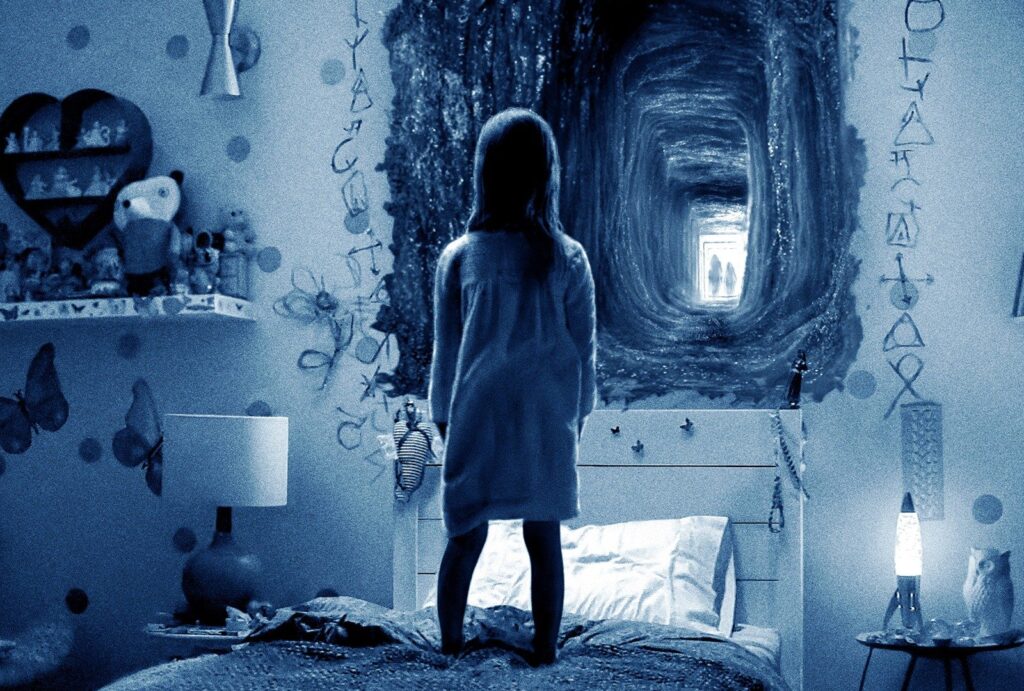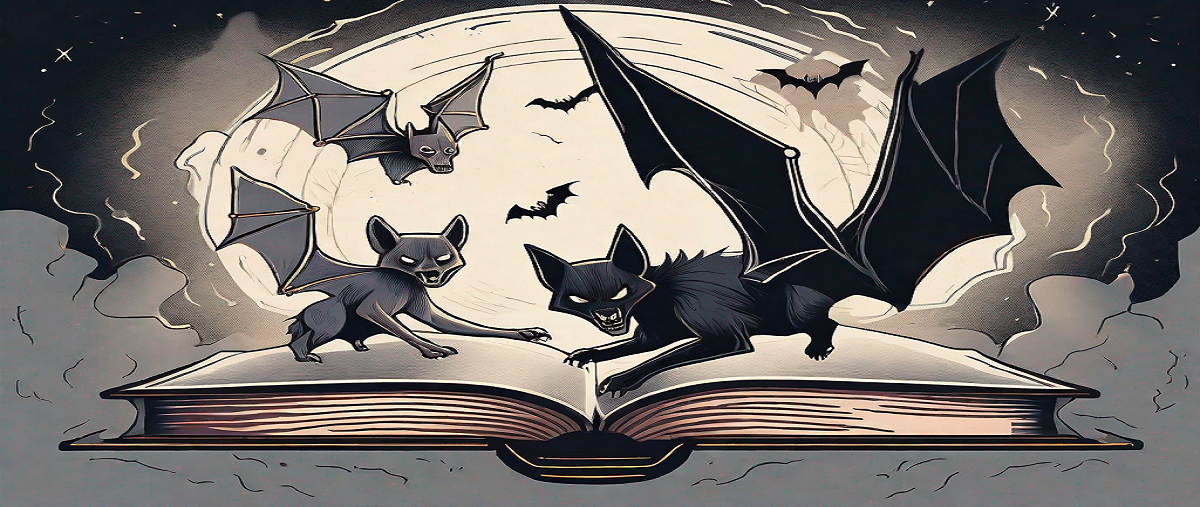Paranormal fiction is a captivating genre that delves into narratives centered on phenomena beyond scientific understanding. From vampires and werewolves to aliens, witches, and ghosts, these stories transport readers into realms where the supernatural reigns supreme.
This literary fiction genre primarily features creatures from fairy tales and folklore. Aliens, fairies, the undead, and shapeshifters are a few examples of such beings. Paranormal literature contains supernatural beings and activities that cannot be explained scientifically. In other words, they are typically outside the scope of the natural world in which we exist.
The best fiction book series for adults in the paranormal fiction genre are set in the real world, but they include experiences that defy scientific explanations. For example, stories set on Earth include creatures such as aliens, fairies, the undead, and shapeshifters.
Its sub-genres include paranormal romance, fantasy romance, urban fantasy, paranormal horror, and paranormal mystery. In recent years, this genre has shaped many New York Times best-selling hardcovers and audiobooks. The plots generally focus on characters depicted as young adults who fall in love with a paranormal being.
Fantasy sub-genre labeled as paranormal!

Being a comparatively new genre, the classifications of fantasy can be perplexing and confusing. It’s quite surprising that people actually categorize book genres as either paranormal or fantasy. It’s incredible. You all, seriously? Really? Really?
It’s shocking and upsetting: there was much blatant misinformation about the fantasy genre. Truthfully, it was bizarre.
Fantasy is evidently a very comprehensive genre that includes everything supernatural, magical, and, yes, paranormal.
So why do people even bother with the term paranormal?
Paranormal is basically something that isn’t scientifically explainable. It is the same thing as fantasy. Fantasy is a genre revolving around magic; magic is something that cannot be scientifically explained. If you want to make up a sub-genre of fantasy called paranormalfine. However, the label paranormal seems to be consistently misused. Contemporary and urban fantasy are actual genres that fit into the mainstream (or uninformed) definitions of supposed paranormal fiction.
The authentic explanation can be the paranormal genre, which is everything that cannot be explained magically or scientifically. So when somebody labels a ghost story as paranormal, they are completely correct. But if someone labels a story with magic in it as paranormal, that is incorrect.
The concept of paranormal romance is kind of confusing. If the implication is that vampires are paranormal instead of magical, explain how specific vampire mythology is or isn’t magical. If an author’s vampire mythology (and none of their other mythologies) has absolutely no magic, then the story is paranormal. But how can stories actually say that? How many paranormal romances are fantasy romances?
Ghost stories are paranormal. But what about tales involving powers summoned by a higher being? If that complex being is of a real religion (or ancient mythology), it would be something known as traditional fantasy-based and thus fantasy romance. If it is a made-up god, such as the gods of J.R. Wards Black Dagger Brotherhood, who created all of the supernatural creatures, what would that fall under? The paranormal definition actually fits here.
8 Paranormal Books You Should Read
Uncanny.
Not quite right.
It’s just plain strange.
Such terms and phrases are frequently used in paranormal literature and for all good reasons. At their best, novels and stories of this nature send that wonderful, unsettling shiver down your spine. Perhaps the author once came across an extrasensory doorway and, after stepping through it for a while, returned with a new understanding of how our world works…or how certain powers outside of our world, housed in other dimensions or realms of sensation, influence the contours of our own reality.
Characters in these best fiction book series for adults are frequently overly curious, power-hungry, or simply unfortunate; they tend to find themselves at the nexus where our reality meets other worlds, catching a glimpse (or more than a glance) of the creatures or presences who live there.
So immediately, please find an octet of paranormal literary novels that will most likely make you doubt the limits of human vision, leading you on trips beyond the safe confines of humankind.
Jeremias Gotthelf, the Black Spider
It is a brief, very unpleasant little folktale in which the Green Man (let’s call him what he is: the devil) makes a deal with a town. As is customary, the villagers break their agreement, and the Green Man retaliates and takes his revenge in the form of the titular beast. Some may find the Catholic guilt overtones excessive, yet they are a product of the time.
Will Elliott of The Pilo Family Circus
Do you want something out of the ordinary, twisted, and a little darker? Elliott will sort you out well. The fearless narrator consumes beads from a velvet sack that he found flung behind bushes by a group of frightening clowns. Why? His metamorphosis, both emotionally and physically, propels the action of this strange and creepy novel.
Muriel Spark’s Ghost Stories
It is a short but fascinating collection of atmospheric short stories about, you guessed it, ghosts. Fans of The Twilight Zone and Alfred Hitchcock Presents will be enthralled by these superbly written spine-tinglers.
Sara Gran, Come Closer
A surprising number of writers have informed us that this is one of the best books they’ve ever read. It’s brief (a typical quality of many works on this list), beautifully written, and downright creepy. If demonic possession terrifies you to death, you might want to skip this one—or buy it right away if you prefer being scared like that.
Oscar Wilde’s The Picture of Dorian Gray
There is a reason why it is considered a classic. Everyone understands the basic narrative; it’s such a versatile concept that it’s been done and remade a thousand times, with slight variations on the theme. However, Wilde’s writing style is unique, and his character, preening elderly Dorian, would fit right in with today’s Instagrammers and YouTubers.
Victor LaValle’s The Devil in Silver
LaValle’s first two novels, The Changeling and The Ballad of Black Tom, are superb, but his third hits all the right notes. Shades of One Flew Over the Cuckoo’s Nest depicts patients at a mental facility battling the callous staff and a monster (of sorts) prowling the halls.
Robert W. Chambers, The King of Yellow
Another classic. Uncanny is the most fantastic word to describe this. It’s the type of work that, once read, reveals how widespread its effect has been—many modern-day horror and speculative fiction literature borrow from Chambers’ themes.
Octavia Butler, Fledgling
Butler is a maestro, and Fledgling was her first novel during a seven-year break. She returned with a bang. On the surface, this is a vampire story, but Butler employs the age-old concept of the bloodsucker to explore themes of race, identity, and otherness.
5 Things to Keep in Mind When Writing Fiction With Paranormal Elements

Do research
When writing the best fiction book series for adults in the paranormal genre, it would be best to research even though you are creating a world completely different from the real one. Don’t skip this crucial and enjoyable phase of the writing process. The Internet is just the beginning. Fiction and nonfiction books on the topic can provide critical insights. Newspaper and journal articles are also rich in information. Finally, consulting industry experts is always beneficial. Expert interviews will always fill research gaps for you.
Honor Your Magic System
Paranormal fiction, like any speculative fiction, has one unbreakable rule. Once you establish your magic system or your rules, you have made a contract with the reader. All the best fiction book series for adults are responsible for keeping up our end of that vital bargain. So, once you create the rules, stick to them.
Build Characters and Plot
Some say your protagonist must be likable. But your main character and supporting cast should be interesting as well.
Are they great at their magic or so bad that you want to study with them? Their quirks? What abilities will fuel conflict and growth?
When creating your story, make sure your character’s abilities help them on their journey but aren’t used as a tool to get them out of every precarious situation quickly.
Write/Rewrite
Writing the best fiction book series for adults is challenging. Nobody can avoid that. Especially when creating a world and characters so distinct from now. Some writers aim to improve their initial draft. All it will do is to slow you down. The best thing to do is to write the initial draft without editing. The real magic comes later. After editing your novel numerous times, you won’t recognize the first draft.
Something gratifying happens during those multiple editing sessions. Your characters will gradually reveal quirks in their personalities that you didn’t know existed. You will be able to hone both paranormal setting and character abilities.
You can organize your thoughts with spreadsheets or mind-mapping software if you don’t like outlines. This roadmap will help a first draft become a solid foundation for future drafts. Reading broadly and enjoying the ride is essential.
Paranormal Setting
You must first choose the setting for your story. Earth or space? City of fiction or altered reality? What current world aspects will be used in each scenario?
Reading widely is advised. See how other authors use setting. Consider Alex Jennings’ The Ballad of Perilous Graves, LA Banks’ Vampire Huntress, or Charlaine Harris’ Sookie Stackhouse.

